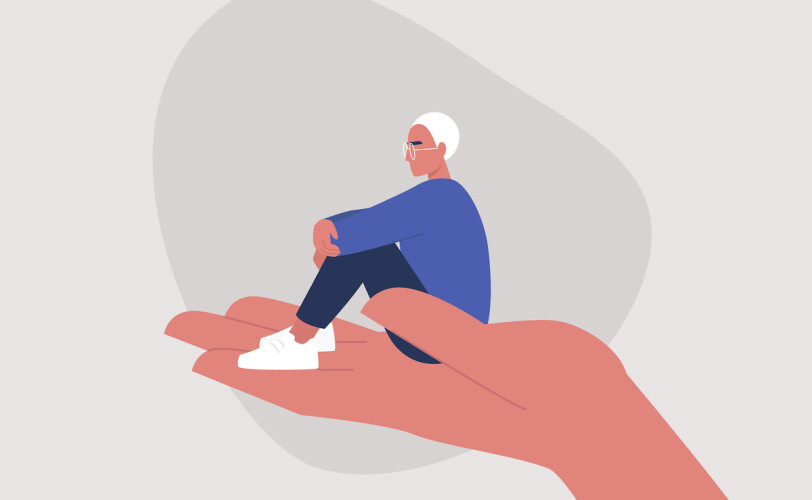Different types of loss and grief
In this article, I will be exploring grief and loss, what it means to us and how we can integrate loss into our lives in a positive way moving forward.

When we think of loss or grief, we naturally think about death and the impact that losing a loved one can have on our lives. But loss or grief can affect you for many different reasons, not just when someone passes.
The grief we feel when the loss is not death related is no less powerful; in fact, in some cases, it can be harder to process than the finality of death. Grief is deeply personal, and no one can truly understand another’s grief. As Mark Twain once said:
‘A child’s loss of a doll and a king’s loss of a crown are events of the same size.’
So, here are four examples of loss that may cause you to grieve, and that have nothing to do with death.
1. Estrangement
Estrangement can occur through family conflict or disruption that results in a loss of contact and communication or, in some cases, moving away. The physical, emotional, and mental grief felt is very similar to the loss of a loved one, bringing to the fore feelings of loss, frustration and anger. These feelings are often made worse by the fact that people do not understand the feelings of loss you may be feeling. It is like a personal pain unique to only you.
2. Financial loss
The grief you feel when your financial stability is affected by the loss of a job, assets, investments, or you come to the end of your career can have a profound impact on your sense of self. On top of the financial worry and loss of security, you may feel a loss of identity as your job or career may have been a key part of how you identify yourself.
3. Life-changing illness or injury
If you have recovered from a life-changing illness, if for the rest of your life you will have to find ways to cope with your illness or if you have suffered an injury which has affected your mental or physical ability, you may feel a deep sense of grief. In a way, you are grieving your former self and there will be a period where you psychologically adjust to your new identity, the new version of you.
4. Relationship loss
Whether you have experienced divorce or separation, or you have lost an important friendship, you may experience feelings of grief. When a relationship ends, you may grieve the loss of the relationship, the routines of your relationship or your identity. It will take time to adjust to your new landscape and you may experience a range of emotions that we associate with grieving for a lost loved one.
It is important to recognise that you are grieving the loss that you have experienced, even though some people may not understand your loss and tell you to get on with it. As with all types of loss, finding a way to express your emotions is key to making the psychological adjustment needed and incorporating your loss into your life moving forward.
If you are struggling with any issues around grief or loss and want a safe, confidential space to talk them through, I am here to offer personalised counselling in Epsom, Surrey, and online. Please do get in touch at any time. As I always say to my valued clients, it all starts with a conversation.

Find a therapist dealing with Bereavement
All therapists are verified professionals






